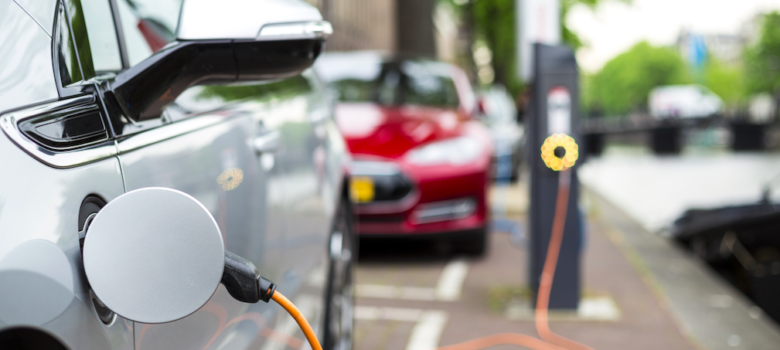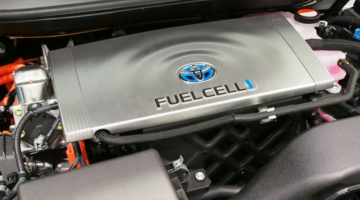
The claim that electric cars are ‘100% eco friendly’ is somewhat misleading. They are vastly more so than petrol or diesel engines, because they release no emissions when driven. In reality, they could never be described as totally ‘green‘ for the following reasons:
Manufacture
There is a lot of energy used in the manufacturing of electric cars. They need to be light, which means manufacturing high-performing metals. In fact, scientific studies have shown that manufacturing an electric vehicle generates more carbon emissions than building a traditional car. Another contributing factor for this is the advanced battery technology required for electric vehicles.

Electric cars are only as green as the energy you charge them with. While electricity itself is a clean fuel, it is more often than not generated in plants run with fossil fuels. Electricity coming from gas or coal-fired power stations has had an environmental impact before it reaches your car. Therefore, how eco your electric car is really depends on which country you’re in, as some are lower-carbon than others in their energy generation. In theory, if you wanted your car to have as small an environmental impact as possible, you could install a home EV charger and run it off solar PV electricity generated at your property. Realistically, there are not masses of people in a position to do this.
Battery recycling
There’s also the question of recycling the large lithium batteries inside electric cars once they reach the end of their lifespan. Generally speaking, the bigger the battery, the longer the range, but this can cause problems when it comes to disposing them. While research is ongoing, scientists are yet to find a way to effectively recycle large quantities of these batteries were there to be mass market adoption of electric cars.
So, electric cars are comparatively environmentally friendly
While the sustainability of electric cars is not completely without dispute, they are a great alternative to standard cars. It’s pretty much impossible to live a zero carbon lifestyle and driving anything other than a bike will mean some impact. But, if you have to drive and you’re concerned for the environment, electric cars are a good way way to go. The UK Government agrees: it now gives considerable grants for both electric vehicles and EV home chargers. It is generally accepted that electric cars produce half the greenhouse gases of their petrol/diesel-fuelled equivalents over their lifetime.












I LIKE THAT You have actually acknowledged the co2 emmissions from the production of electricity, a fact that most “environmentalists” conveniently forget.
I would like to point out though that installing your own solar pv system doesn’t actually have any impact on the co2 emmissions of an electric vehicle. sounds odd but the regional electricity companies – those who manage the grid – are obliged by law to buy all renewable electricity. so when you install a solar pv system any electricity you don’t use goes into the grid. conversely any electricity you do use to charge your ev comes from the grid. the electricity generation mix in the grid is made up of renewables (as mentioned must always be bought by the rec) nuclear – runs as a steady base line controlled more by safety than electricity demand, gas fired – way too expensive and runs at maximum efficiency no matter what, never ever adjusted to balance the grid demand with supply, and finally coal fired power stations – the biggest polluters but also the most economically efficient for balancing the grid. so the outcome ? when you charge your environmentally friendly electric car (which some idiots think are non-polluting) the electricity effectively comes from the worst polluting coal fired power station currently exporting to the grid. when you compare the co2 emmissions of the coal fired power station (and not forgetting the transmission losses) to a highly efficient diesel engine vehicle of comparable size (of which there are not many – most diesel engine cars are of a usable size unlike EVs) you will find that all evs actually produce about twice as much co2 as their diesel engined counterparts.
So question – surely this is all dependant on where the electricity comes from to power them. Here over in Victoria, more and more people are getting electric cars, but they are coupling this with solar panels on their roofs. Now obviously that suggests that the electric cars are environmentally friendly, but if you don’t produce your own electricity then surely they are dependant on what is making the electricity that charges your car. Obviously a gas power plant is not as clean as a wind turbine. This makes it very hard to make an argument to whether electric cars are good for the enviroment. I guess as the world shifts to more renewables then this will change, as more and more electricity will be made at random times that doesn’t suit traditional demand curves. i.e wind in the middle of the night is perfect for charging electric cars if the electricity can’t be stored in another way. Also I guess you need to consider the environmental impacts of mining the rare earth metals required for both batteries (e.g. lithium) or solar panels. I guess therefore to answer this question properly, you need to very much look at it on a car by car basis.